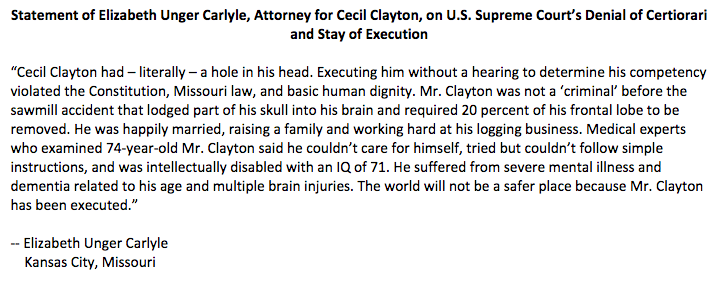D
Deleted member 231381
Unconfirmed Member
You get to live and breathe, you get to taste the food you eat, see your family, maybe read a book, get some exercise, which is more than the dead gets to do which is ABSOLUTELY NOTHING, not really fair at all, death sentence all the way.
But killing the person who killed someone else doesn't bring that person back to life. It's not like it restores the situation, or even does anything really useful. It just... kills someone. Why is that necessary?

